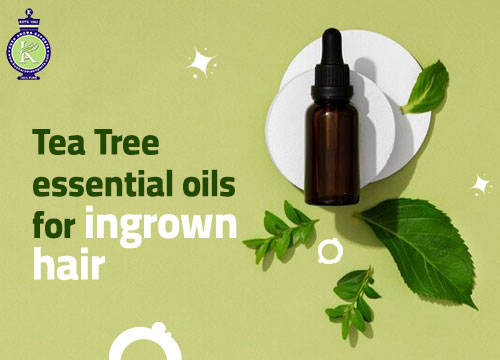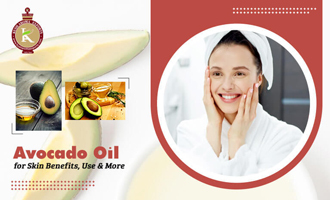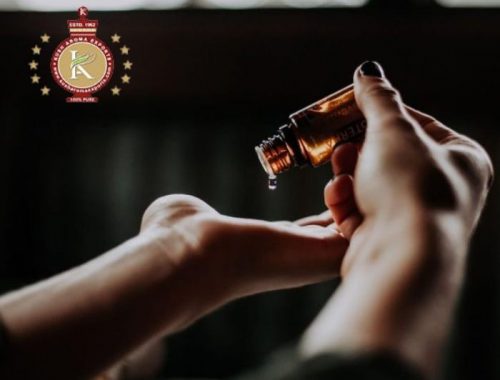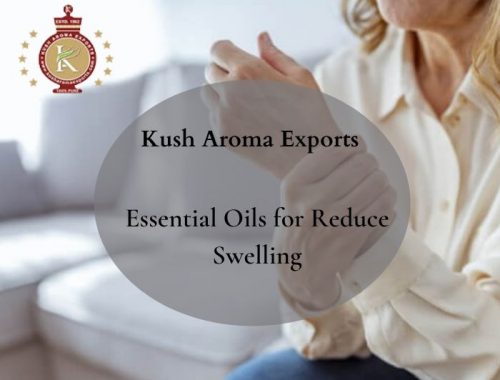A painful and uncomfortable condition, ingrown hairs are unsightly. Is there a natural remedy for it then? Essential oils are beneficial. These oils offer relief from pain, discomfort, itchiness, irritation, redness, and swelling as well as protection and treatment for other skin infections because they are packed with highly potent medicinal goodness. The simplest and quickest method for removing ingrown hairs is by using essential oils.
Why Do Hairs Grow Back?
Ingrown hairs happen when hair curls into the skin rather than growing out of the hair follicle and above it. As the hair grows, the tip irritates the skin and exacerbates inflammation. Ingrown hairs theoretically can develop anywhere there is a hair follicle.
Get these oils from local carrier oil manufacturers in any desirable quantities.
In order to treat ingrown hairs, essential oils reduce the chemicals released by ingrown hairs by exfoliating pores of impurities.
Top essential oil for ingrown hair
With their antifungal, antimicrobial, and anti-inflammatory properties, essential oils treat ingrown hair quickly and effectively.
1. Tea Tree essential Oil
Due to its powerful anti-inflammatory and anti-septic properties, tea tree essential oil can help with your ingrown hair issue. When applied to the affected area, this essential oil effectively reduces redness and irritation.
The anti-inflammatory properties of tea tree essential oil also help to dry out the pus that has accumulated under the skin as a result of ingrown hair conditions. Due to its antiviral properties, this essential oil can lessen the likelihood of infection in cases of ingrown hair that are left untreated.
2. Peppermint Essential Oil
With their calming qualities, peppermint essential oils help to lessen the irritation brought on by ingrown hairs. This essential oil lessens the likelihood of skin infections and opens pores to release the hair that has become trapped, thus lessening pain and discomfort.
This essential oil’s menthol soothes itching and redness when applied topically, and its antibacterial properties help to lessen razor bumps brought on by ingrown hairs. Regular use guarantees that peppermint essential oil also helps to lessen other fungal infections and ingrown hairs.
3. Lavender Essential Oil
Lavender essential oil is among the most widely used essential oils and is very effective for treating ingrown hairs. Many people experience a lot of itching and discomfort from ingrown hair; some people even experience pain.
When used sparingly, lavender essential oil provides a soothing sensation to the itching and redness. Applying this essential oil helps the bump dry out more quickly than applying other essential oils due to its anti-bacterial properties.
4. Eucalyptus Essential Oil
The best exfoliator is created when eucalyptus essential oil is combined with other ingredients. The scrub helps exfoliate the skin, lowering the likelihood of ingrown hairs in the first place and making their treatment simple.
When a hair follicle becomes lodged beneath the skin, it results in an ingrown hair that hurts and produces pus. Eucalyptus essential oil helps to provide anti-septic properties to lessen the likelihood of infection as well as ensure that pus is removed and the affected area is dried out to provide quick comfort.
5. Lemongrass Essential Oil
Ingrown hairs respond well to lemongrass essential oil as a treatment. Citric acids and vitamin C, which are abundant in this product, disinfect ingrown hairs and make bumps dry and removeable.
When applied to the affected area, lemongrass essential oil may cause some minor stinging while clearing the bacteria and reducing the amount of pus present. This essential oil can remove ingrown hair after a few applications.
6. Rosemary Oil
Ingrown hairs result from blocked pores, which rosemary essential oil can open up. This essential oil’s anti-inflammatory and antibacterial qualities help itching, redness, and pain to decrease.
Additionally, using it enhances local blood circulation, which treats ingrown hairs internally, and its aroma provides a calm sense of well-being to lessen stress brought on by the discomfort and irritability of ingrown hairs. When used frequently, rosemary essential oil also provides protection against fungus infections.
7. Oregano Essential Oil
With its potent anti-viral and anti-microbial properties, oregano essential oil is well known for treating ingrown hair. While its anti-bacterial properties clean up the infection to stop it from spreading further, its anti-inflammatory properties help to reduce pain.
When touched, swelling and redness from ingrown hairs can hurt. By drying out the ingrown hair and reducing redness, oregano essential oil helps to lessen internal swelling and pus. Attempt using this essential oil if you have a fungal infection.
8. Frankincense Essential Oil
When used sparingly and correctly, frankincense essential oil offers relief from unpleasant ingrown hairs and lessens the pain and swelling that go along with them. Regular use also provides protection for the future.
Ingrown hairs are unpleasant and uncomfortable, but they can also spread other infections. Use frankincense to relieve pain, redness, irritation, and itching. This essential oil’s anti-microbial properties also help to stop the infection from spreading.
9. Lemon Essential Oil
Similar to lemongrass essential oil, lemon essential oil is rich in antioxidants, vitamin C, and citric acid, all of which help to lessen the size of the ingrown hair and its accompanying pain.
Its vitamins and nutrients ensure that the area is cleaned up so that no more harm can be done. Once the ingrown hair is reduced, regular use also lightens the area to provide natural skin tone and texture. For yourself, try lemongrass essential oil.
How To Use Essential Oils For Ingrown Hairs?
Due to essential oils’ higher potency, they should not be applied directly to the affected area as they can cause skin irritation. So what to do? You can use any carrier oil as a base to dilute essential oil on your affected area. Use a 1:10 ratio of essential oil and carrier oil, respectively. Or follow the recipe mentioned above.
Conclusion
Essential oils can help treat a variety of skin-related conditions, including eczema, fungal infections, and ingrown hairs. Since essential oils are the life force of plants, their potency is very important. So always be careful to purchase pure, high-quality essential oils.




